Doctor of Medical Sciences Applies Total Ergonomics Approach to Improve Health and Occupational Safety of Logistics Drivers
Located in the Dr. AA Made Djelantik room, 4th Floor of the Faculty of Medicine Building, Udayana University, the Doctoral Promotion exam was held with the promovenda candidate, Ir. Euis Nina Saparina Yuliani, ST., MT., IPM., with the title of the dissertation "Implementation of Fatigue Management Based on the Total Ergonomic Approach Can Improve the Health and Safety of Logistics Drivers." (12/8/2024) Companies that implement good Occupational Health and Safety (K3) can create effective, comfortable, safe, healthy, and efficient working conditions, thereby improving the health and safety performance of workers. This study aims to prove that the implementation of Fatigue Management based on the Total Ergonomic Approach (MK-PET), which is implemented through the Systemic, Holistic, Interdisciplinary and Participatory Approach (SHIP) and Appropriate Technology. So as to produce humane, competitive and sustainable Occupational Health and Safety for logistics drivers. This study is an experimental study using the same subject design. The research stages include the PI Period without Ergonomics intervention, where drivers work as usual.
The PII Period with Ergonomics intervention, namely implementing an Action Plan for drivers. This Action Plan is the result of FGD between drivers, company management, experts in the disciplines of Ergonomics, Occupational Physiology, Driving Safety and Fatigue Management, Public Health, Nutrition, Industrial Engineering, Electrical Engineering, and Informatics Engineering. The Action Plan includes, the addition of neck and back rest facilities, seat cushions on the driver's seat and folding stairs for unloading activities, nutritional supplementation of warm honey drinks before and after work, active rest for 30 minutes for muscle stretching, giving warning signals (alarm sounds) as output of drowsiness detection technology based on the Raspberry Pi application, SOP as a guide for unloading activities, and route scheduling applications with Ms. Excel and Maposcope route planner. The number of samples in this study was 10 logistics drivers at a fruit juice beverage company. Measurement of research variables includes measurement of workload, namely physical workload through heart rate and mental workload using the NASA-TLX questionnaire, musculoskeletal complaints with the Nordic Body Map questionnaire, fatigue with the Industrial Fatigue Rating Committee (IFRC) questionnaire, alertness with the Sustained Attention Test (SAT) application, subjective sleepiness with the Karolinska Sleepiness Scale questionnaire and objectively with the Raspberry Pi-based sleepiness detection application, incidents and accidents and unloading time were measured manually.
Data analysis used the Shapiro-Wilk test for data normality testing, and the paired t-test for comparative testing, with a significance level of 0.05. The results of the study indicate that the implementation of Fatigue Management based on the Total Ergonomic Approach (MK-PET) can improve the Occupational Health and Safety of logistics drivers which can be seen through a decrease in physical workload by 8.80% (p< 0.05), a decrease in mental workload by 9.69% (p< 0.05), a decrease in musculoskeletal complaints by 27.85% (p< 0.05), a decrease in fatigue by 24.31% (p< 0.05), an increase in alertness by 50% (p< 0.05), a decrease in subjective sleepiness by 37.57% (p< 0.05) and objectively by 26.55% (p< 0.05), a decrease in incidents by 39.97% (p< 0.05) and a decrease in unloading time by 21.88% (p< 0.05). So it can be concluded that the implementation of Fatigue Management based on the Total Ergonomic Approach (MK-PET) can improve the Occupational Health and Safety of logistics drivers. The suggestions in this study are strengthening the K3 department, implementing the Action Plan, K3-related training and regular health checks for logistics drivers.
This examination was led by the Coordinator of the Doctoral Study Program in Medical Sciences, FK Unud, Prof. Dr. dr. I Made Jawi, M.Kes., with the following examiner team:
1. Prof. Dr. dr. I Putu Gede Adiatmika, M.Kes (Promoter)
2. Dr. dr. I Made Muliarta, S.Ked., M.Kes (Co-promoter I)
3. Prof. Ir. Hardianto Iridiastadi, MSIE., Ph.D., CPE (Co-promoter II)
4. Prof. Dr. dr. I Made Jawi, M.Kes
5. Dr. dr. Luh Putu Ratna Sundari, M.Biomed
6. Dr. dr. Susy Purnawati, MKK
7. Dr. Ir. Hernadewita, ST., M.Si
8. Dr. drh. I Made Subrata, M. Erg
9. Dr. Dr. I Putu Adiartha Griadhi, M.Fis., AIFO., S.Ked
10. Dr. Dr. Agung Wiwiek Indrayani, S.Ked., M.Kes
Meanwhile, the academic invitees were:
1. Dr. Ni Made Swasti Wulanyani, M.Erg.Psychologist
2. Dr. Dr. I Made Krisna Dinata, M.Erg
3. Dr. Dr. Nila Wahyuni, M.Fis
4. Dr. Dr. Indira Vidiari Juhanna, M.Fis. 5.Dr. Dr. I Dewa Ayu Inten Dwi Primayanti, S.Ked., M. Biomed., AIFO
In this exam, Dr. Ir. Euis Nina Saparina Yuliani, ST., MT., IPM, was declared the 435th Doctoral Graduate of the Doctoral Degree Study Program Medical Sciences, Faculty of Medicine, Udayana University with a Very Satisfactory predicate.
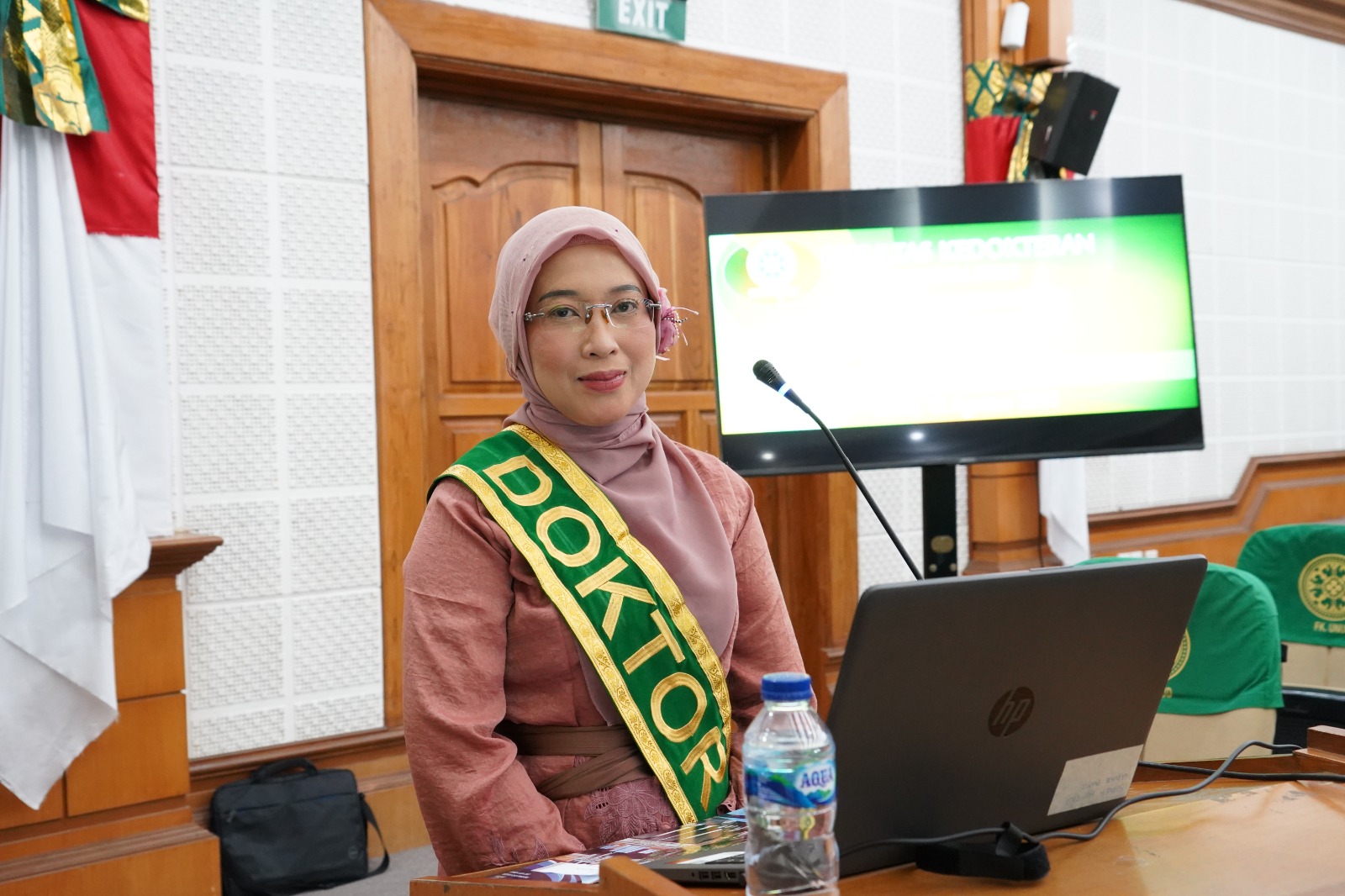
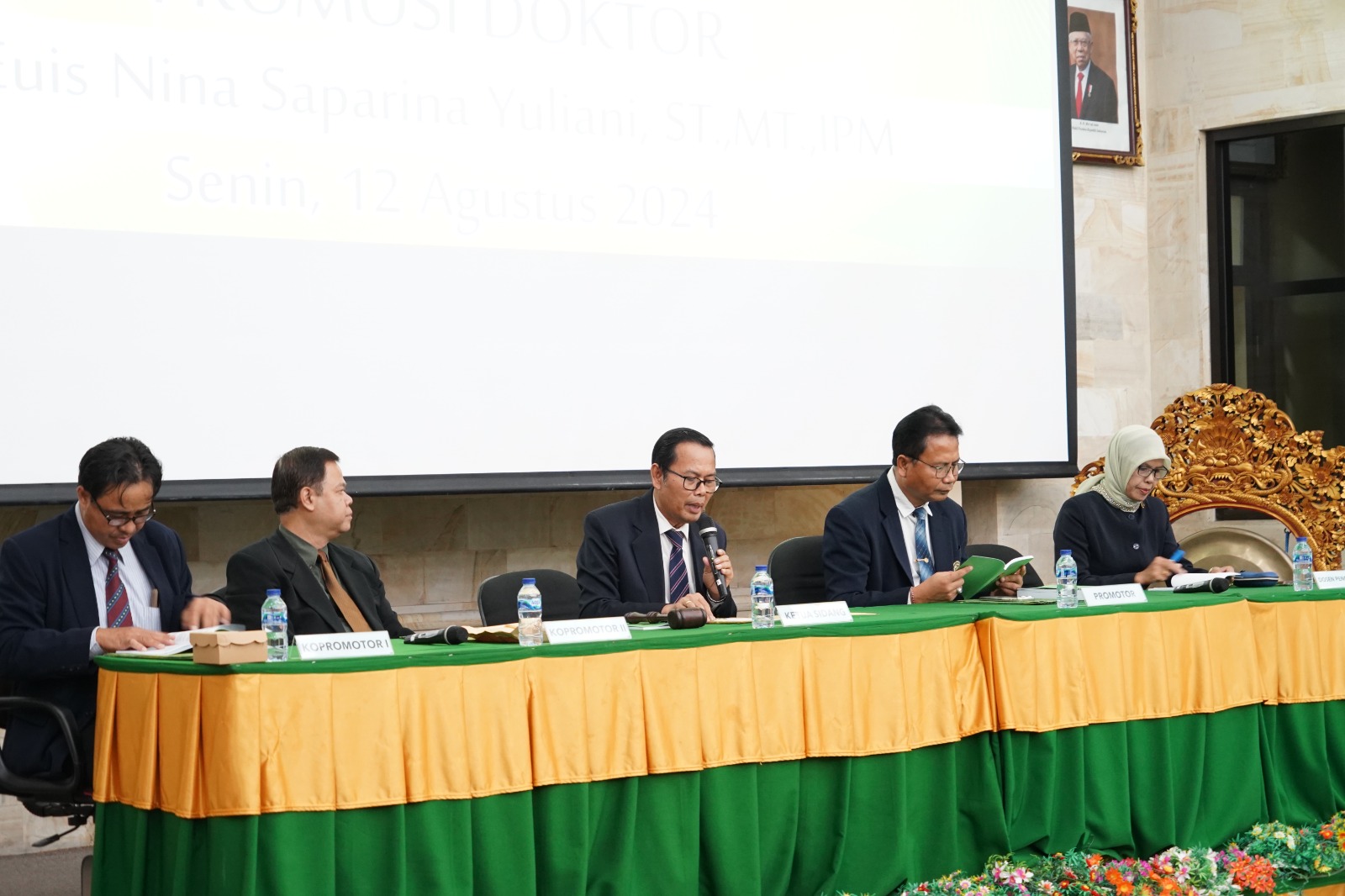
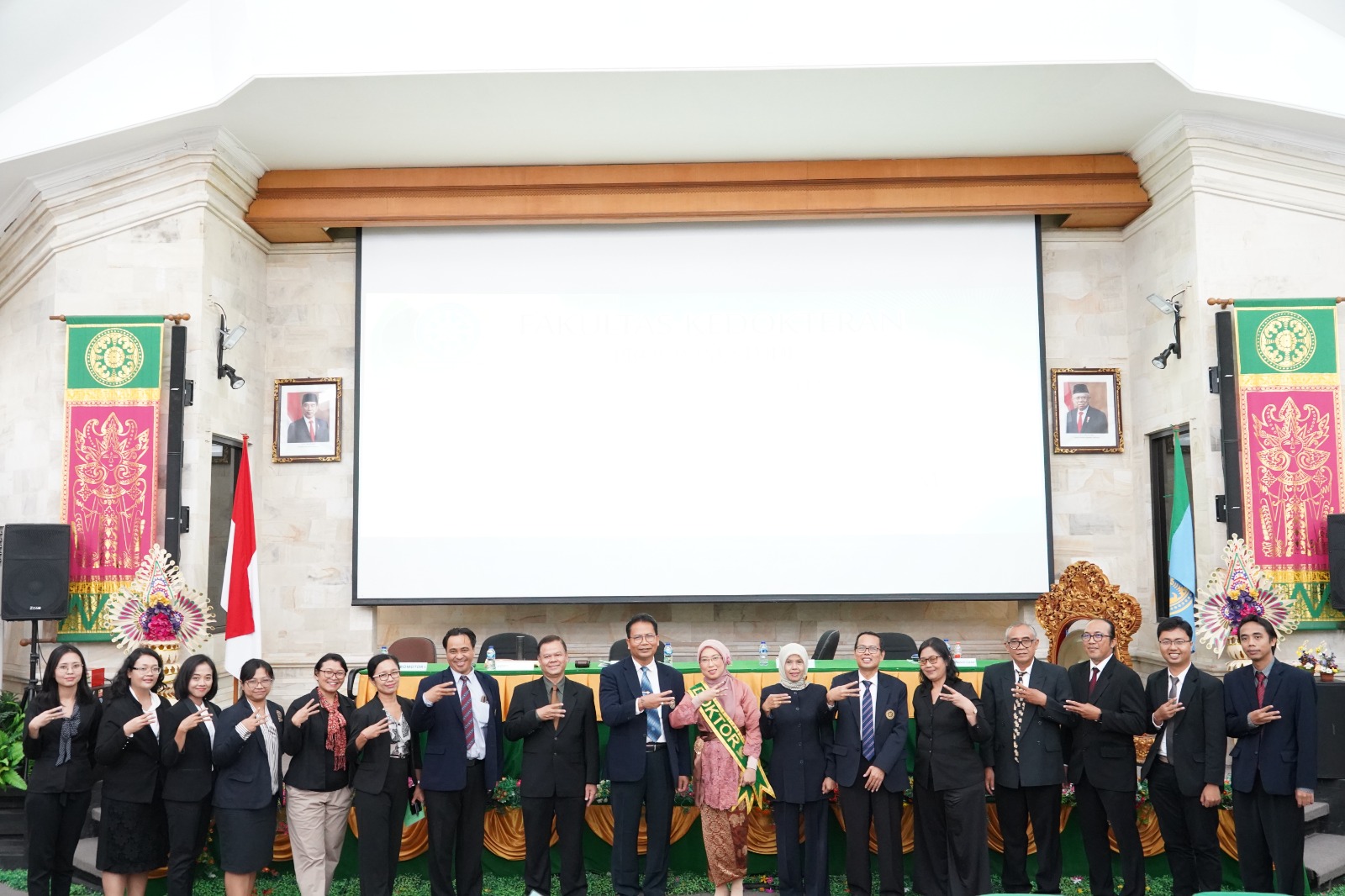
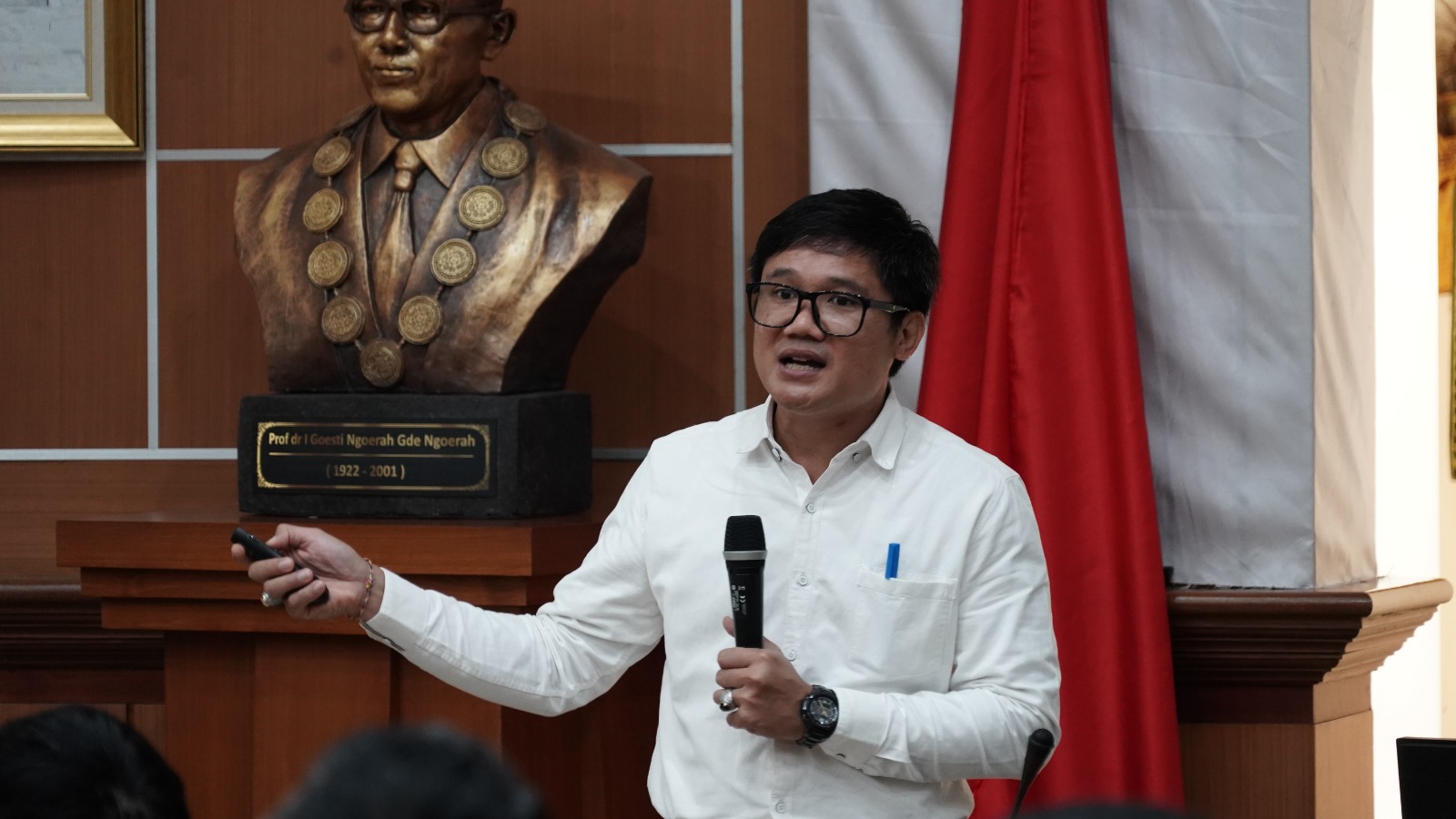

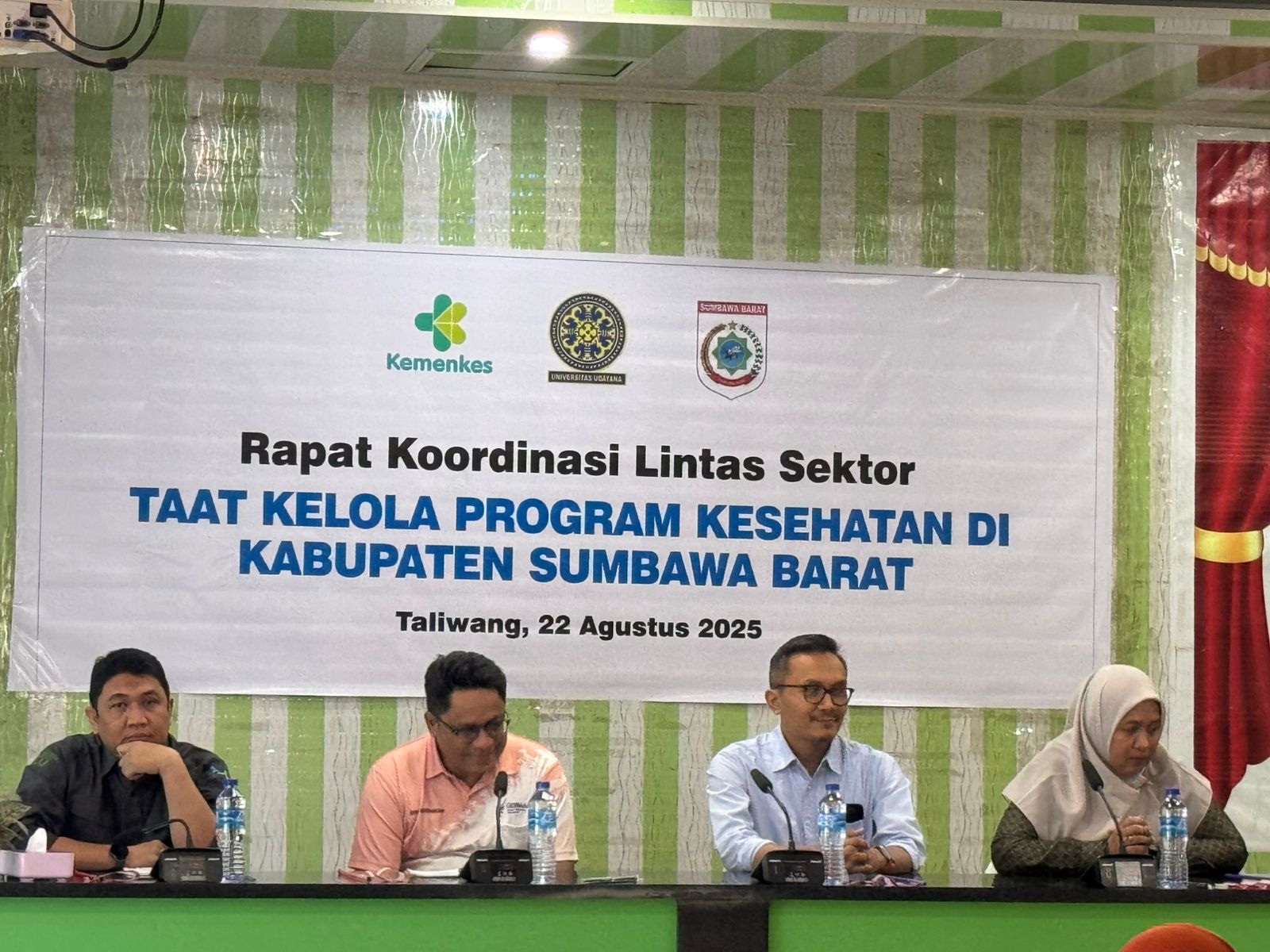
UDAYANA UNIVERSITY